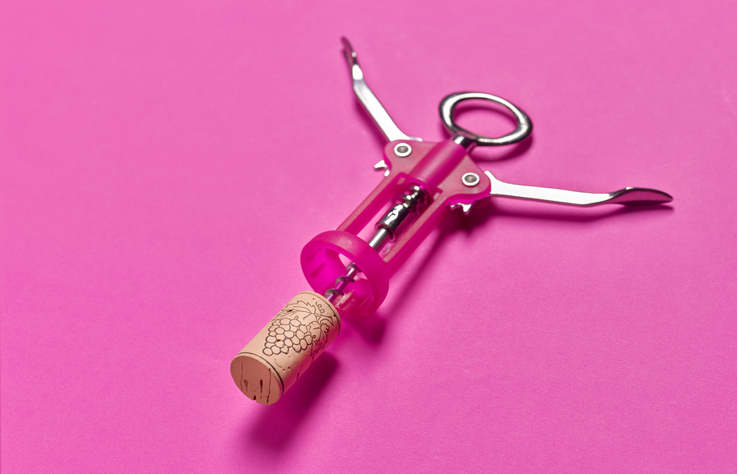
Source: Peter Dazeley / Getty
When Wendy Williams broke free from her decade-long addiction to cocaine, she didn’t seek formal treatment. Instead, she leaned on loved ones, such as her then-husband, as she paved her own path to recovery. Both recent headlines and research show that Williams is not alone. Singer Lil’ Mo pulled no punches as she described retreating to her mother’s basement in order to get clean from opioid addiction. Historically, research has shown that Black people are less likely to complete treatment programs for alcohol and substance abuse. While barriers to treatment such as socioeconomic factors are often cited as the cause, when celebrities with wealth and access are circumventing traditional treatment programs, we have to ask ourselves why.
“Most alcohol abuse treatment centers are not culturally competent,” said Dr. Ijeoma Opara, Assistant Professor of Social Work at SUNY Stonybrook University’s School of Social Welfare. “They’re not really trained on how to work with Black women and they’re even less trained on how to work with Black adolescent girls. There are not enough resources for them. There are not enough people in these spaces that look like them and that acknowledge their historical disadvantage. They’re not able to acknowledge how the concept of race, gender, and sex can impact why some Black women may have worse health outcomes than other groups. That leads to Black women not seeking treatment and if they do, they’re not finishing treatment. This is a problem that needs to be addressed. We need more culturally relevant treatment options that Black women access.”
Traditionally speaking, Black women are not the face of substance abuse. Statistics show that Black women have lower rates of alcohol and substance abuse in comparison to the other groups, but that doesn’t mean that we’re not struggling. Public figures such as Mary J. Blige, Teairra Mari, and Tommie Lee have all publicly noted their struggles with alcohol or substance abuse. And if we use Wendy as an example, the media personality’s journey to sobriety would eventually land her in a sober living house surrounded by men, likely white men.
“The reason that our health outcomes and our health issues don’t really matter to people is that Black women are just naturally resilient so when they do face health disparities and issues like alcohol abuse disorder, they’re less likely to seek treatment and less likely to be taken seriously,” Dr. Opara explained. “If alcohol treatment centers want to be culturally relevant, they need to center race, acknowledge the historical context of being a Black woman or Black girl in America, and build messages of ethnic pride and racial pride.”
Additionally, there is a tremendous need for culturally competent mental healthcare providers in regard to Black women. “With mental health treatment, like alcohol abuse treatment, we have very few therapists and clinicians who look like us and understand the challenges of being a Black woman in America.”
Oftentimes, when Black women begin to charter in the territory of alcohol abuse, it’s because it becomes a means of coping.
“The problem with Black women who may be engaging in heavy alcohol use is that they’re using it as a coping mechanism and they don’t know any other coping mechanisms that can make them feel better in the moment,” Dr. Opara said. “The rates of alcoholism in women are actually rising. We have to be aware of what type of gender-specific and culturally relevant approaches we can use for women. Many of these programs were designed with men in mind.”
When to seek help
“Alcohol abuse is so normalized in comparison to other substances we have access to. It’s a socially acceptable use of a substance. You can recognize that you have a problem when you feel dependent on it. When you feel that you can’t go a day without having a glass or you’re not able to function in your everyday activities. When it becomes excessive and you’re drinking a bottle a day or you feel like you have to drink in order to be in social settings or in order to sleep or to function normally,” Dr. Opara pointed out. “I would advise any Black woman, even if you’re not classified as having alcohol abuse disorder, if you start to sense that you need a substance to do everyday things such as sleep and talk to people or cope with the daily experiences of being Black in America, that would be an important opportunity to seek a mental health therapist.”
How therapy can help
“Working with a therapist will help you to develop coping mechanisms and if the therapist can see that it’s a more serious, diagnosable disorder, then that’s when they will refer you to a treatment center,” Dr.Opara said.
When you don’t have access to treatment
“For those who don’t have time or access to a therapist, another option is to confide in friends and family,” Dr. Opara explained. “A lot of times as women, we suffer in silence. When you recognize that you have to hide a specific problem, that’s when you know it’s a problem. Talk to family. Talk to friends. Remove yourself from situations that you know may trigger you to engage in alcohol use.”









